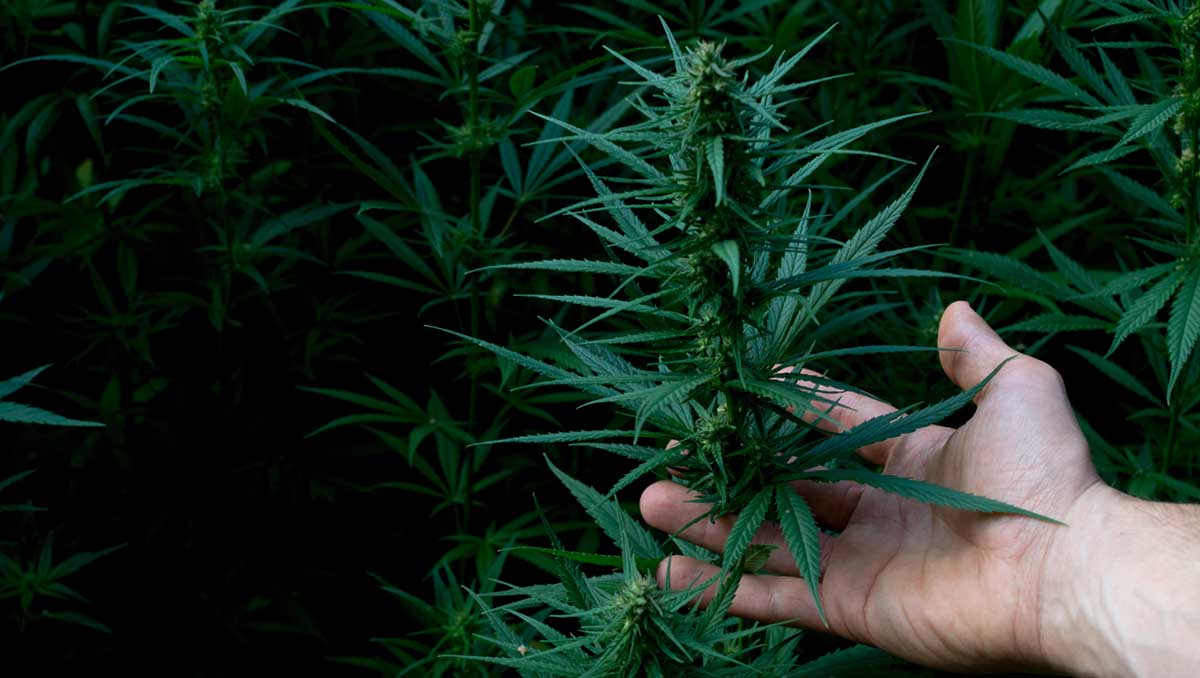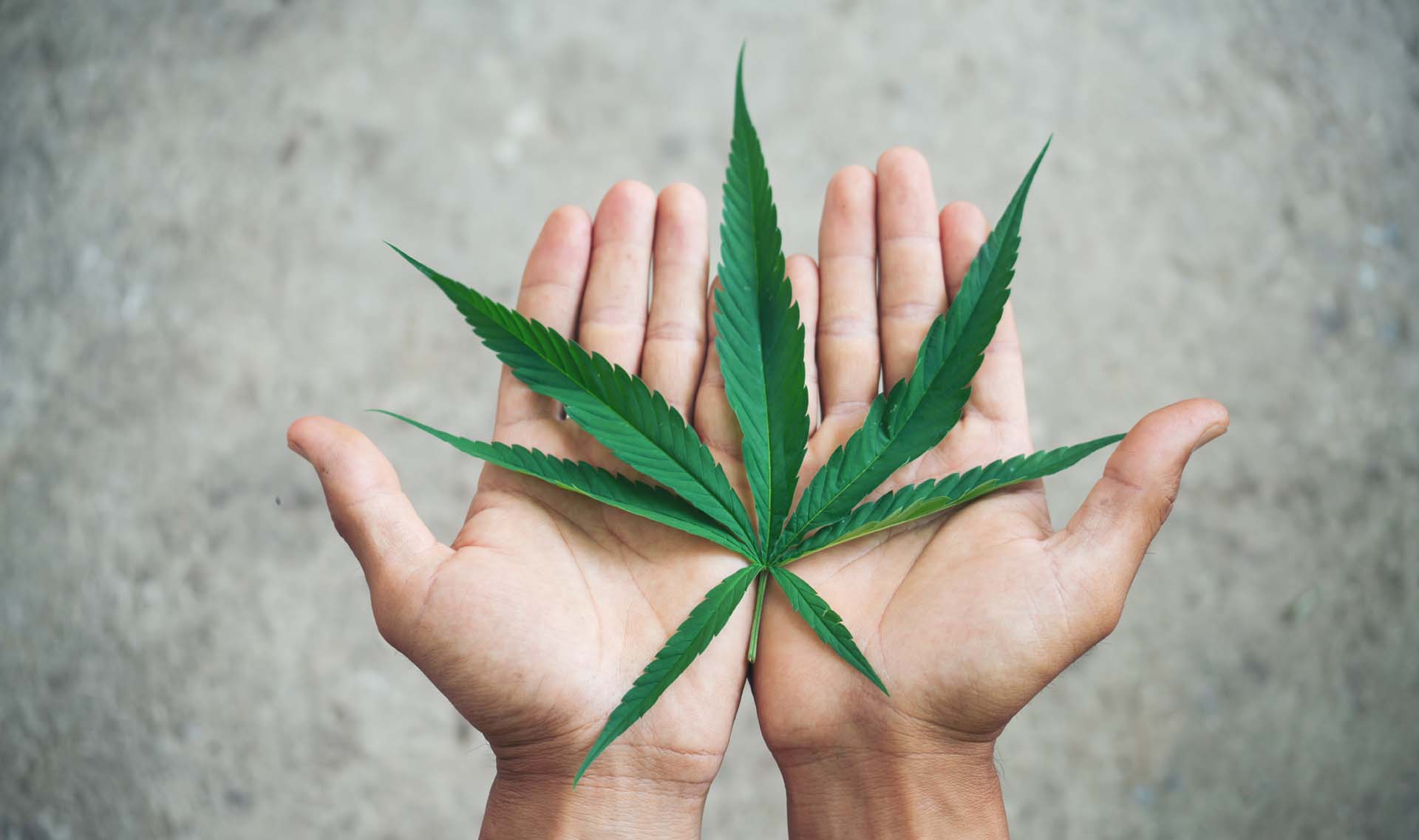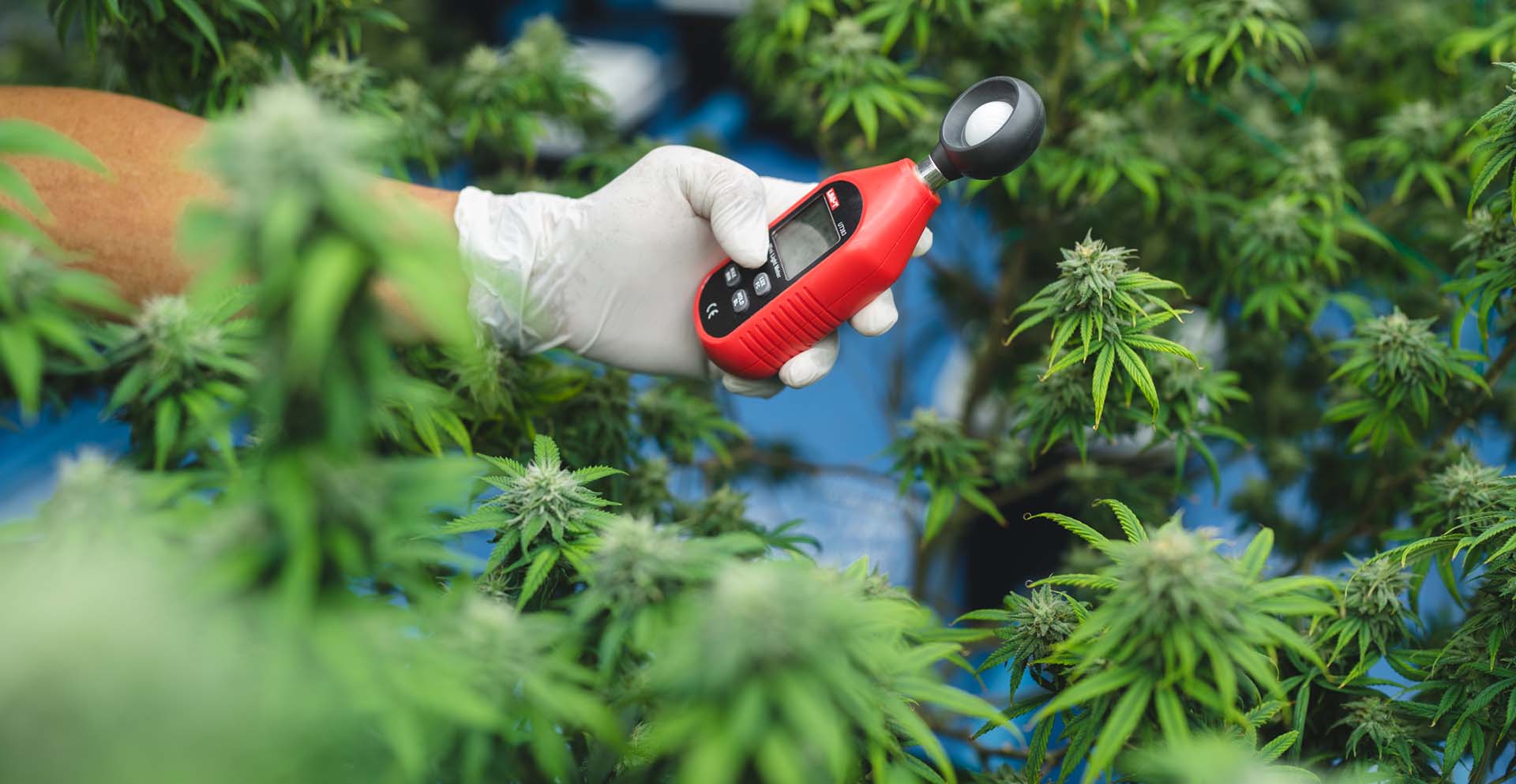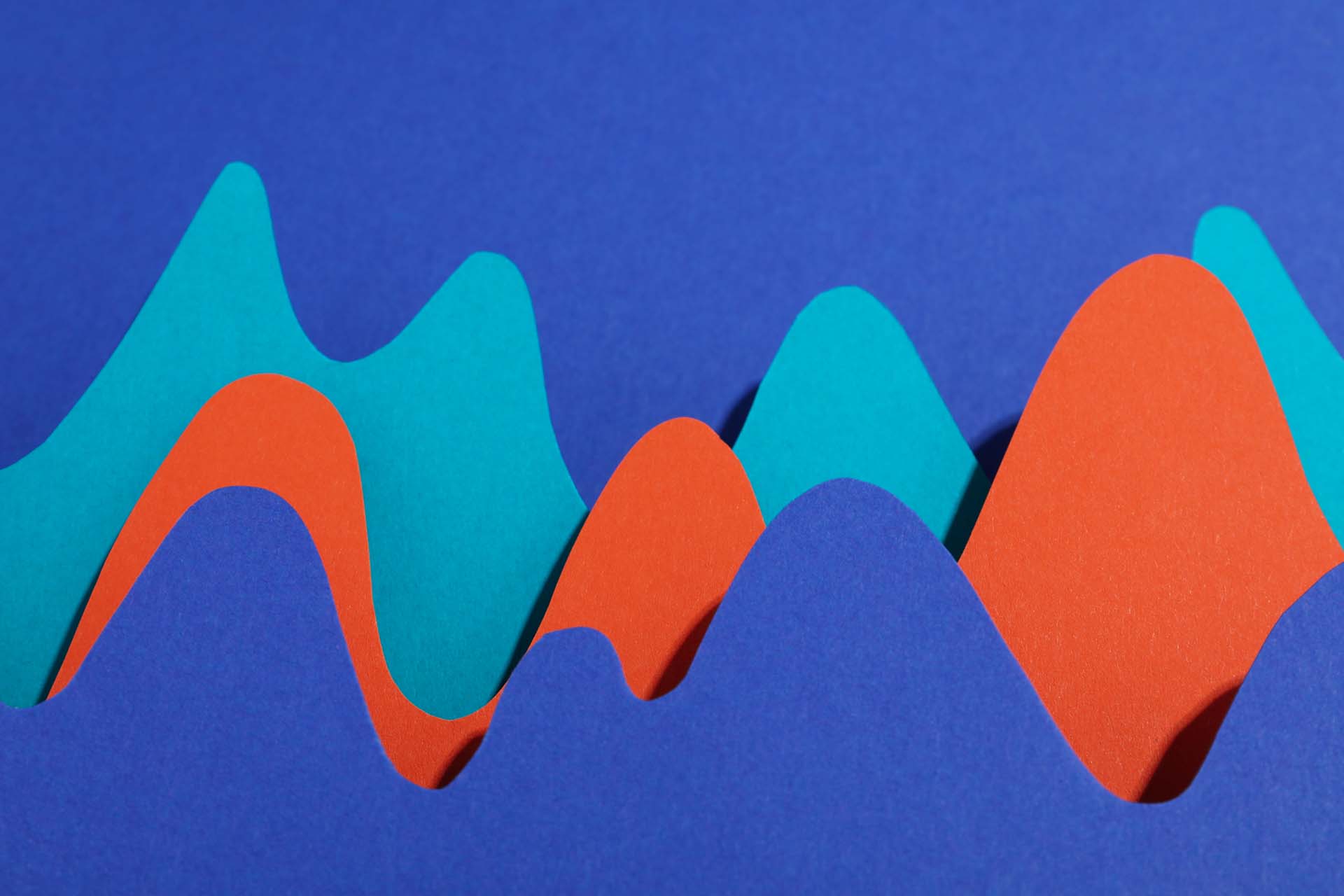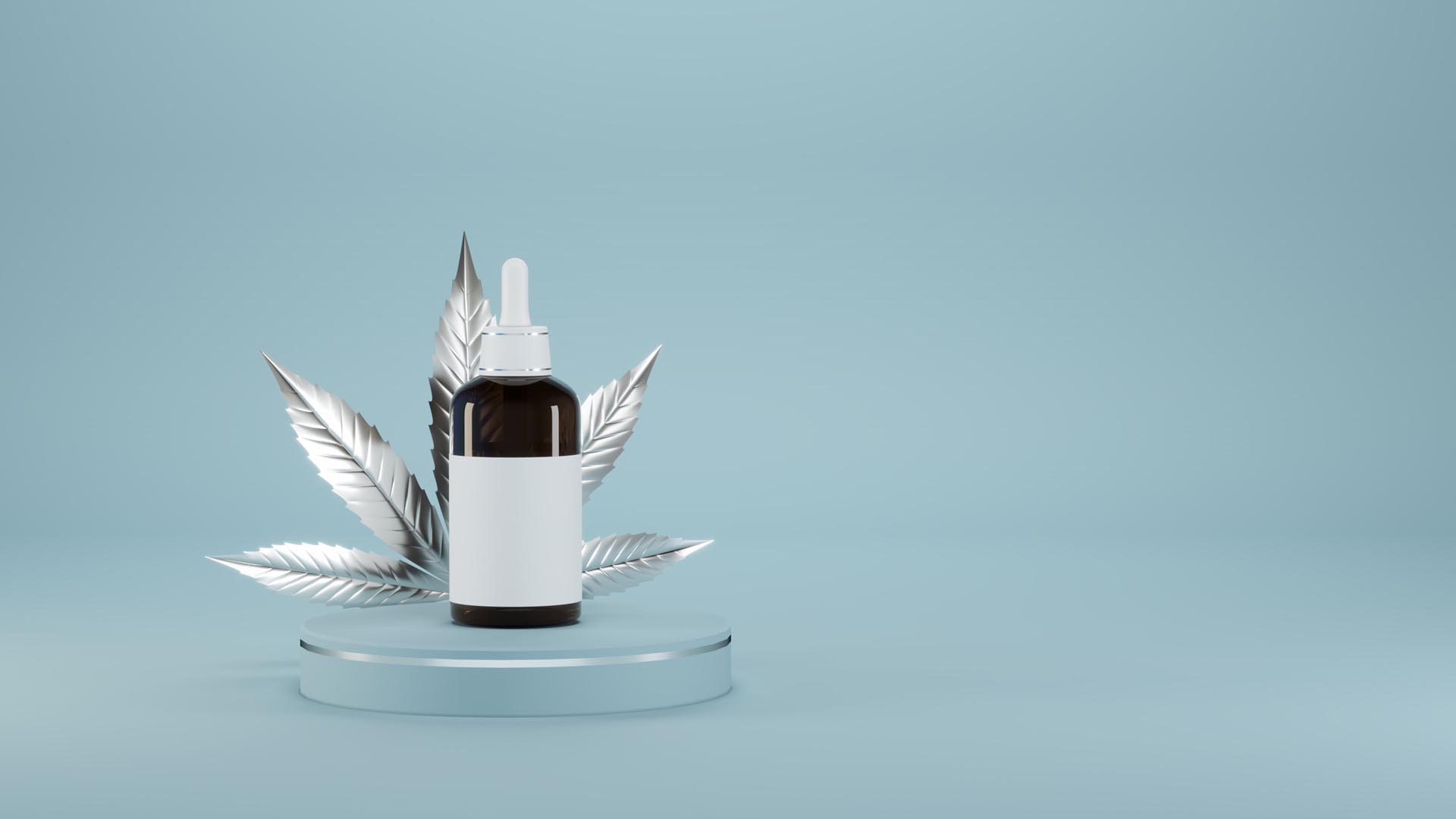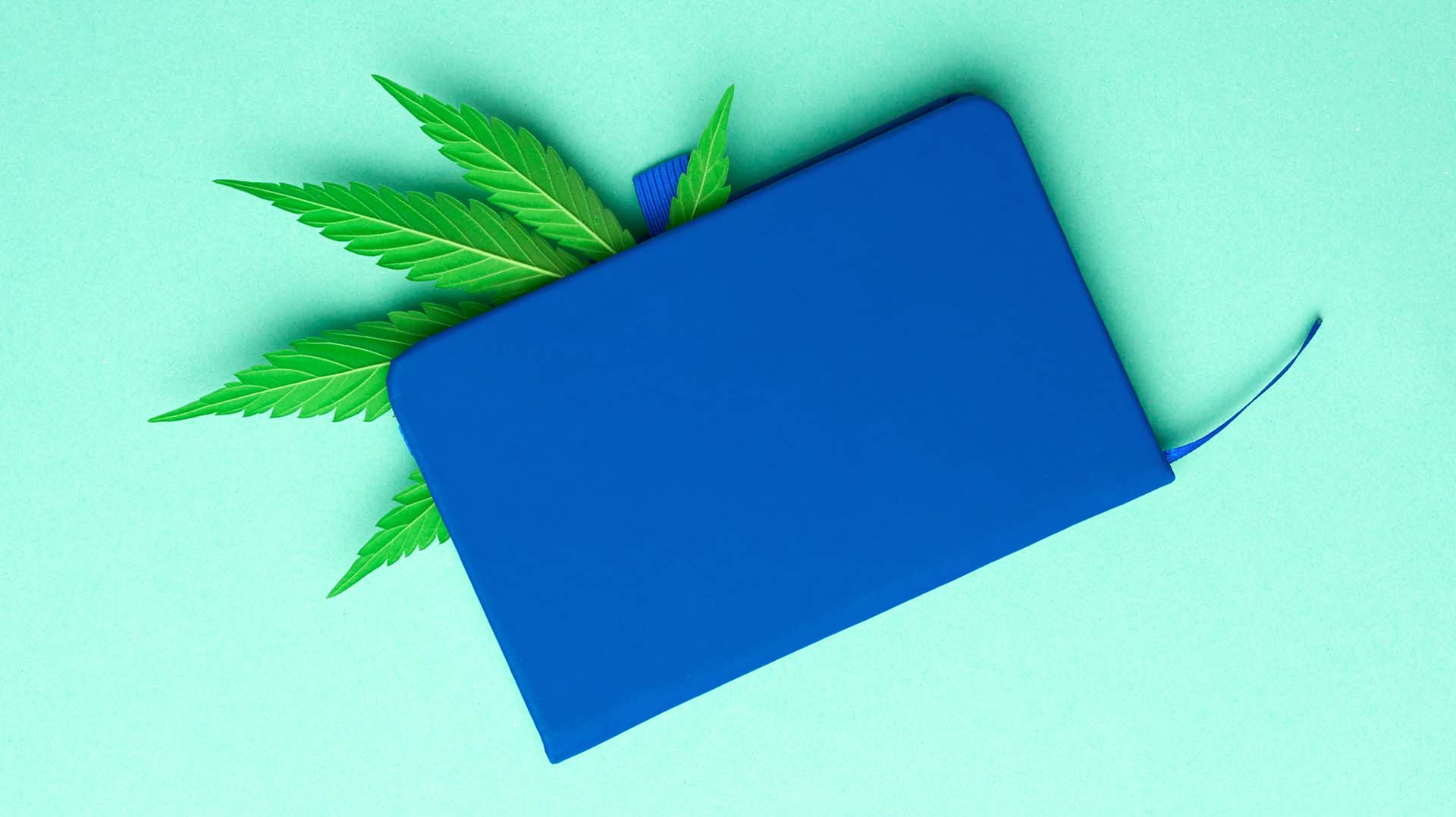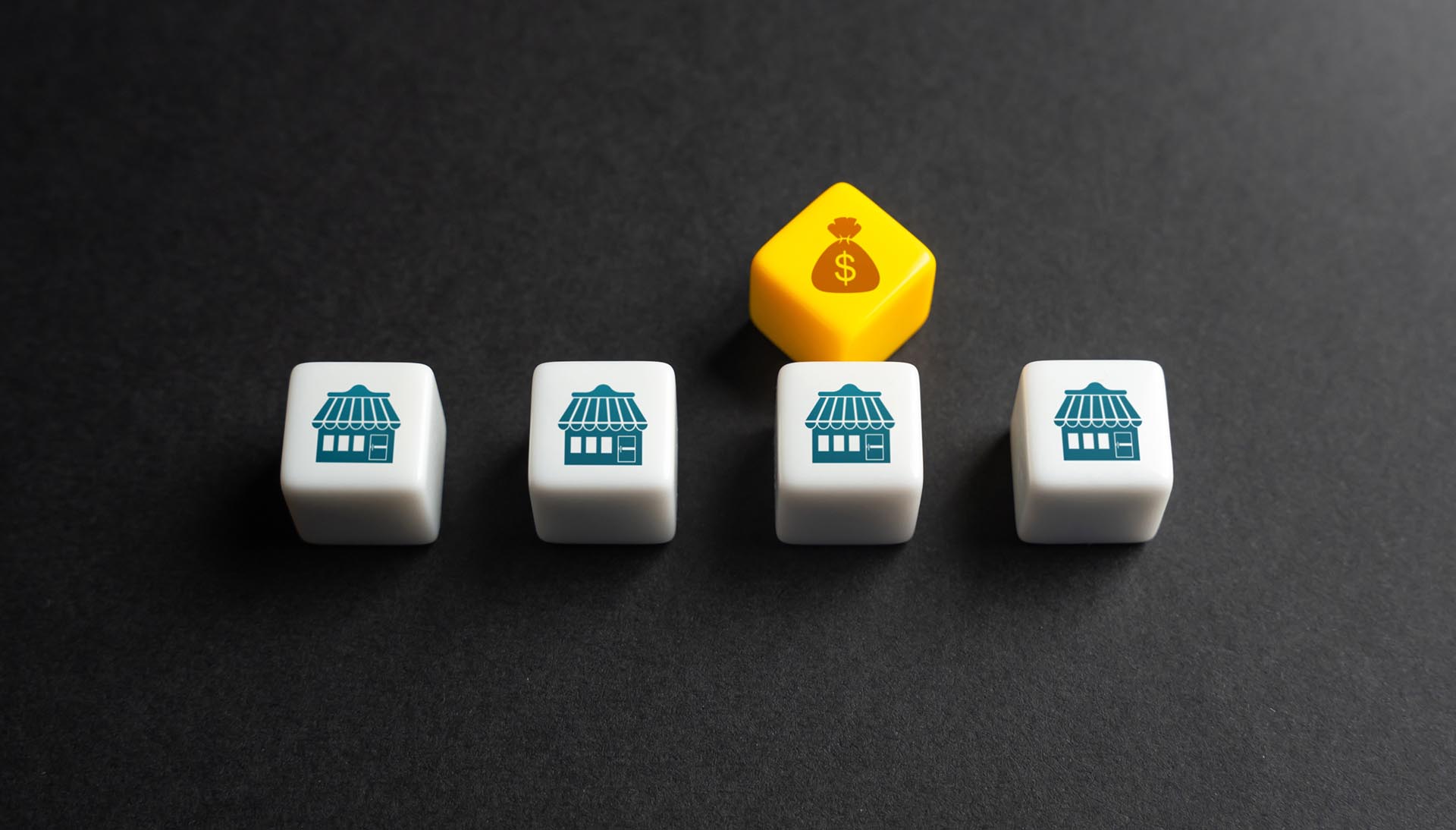Now accepting clients for New York, Maryland, Delaware, and Missouri! Please contact us if you have questions.
The Benefits of Microdosing Mushrooms
Table of Contents
Have you ever wondered if there’s a secret hack to boost your well-being and unlock your full potential? Well, look no further, because microdosing might just be the answer you’ve been searching for.
Introduction
Microdosing involves taking small doses of psychedelics, such as magic mushrooms or LSD, with the aim of experiencing their potential benefits. This practice has gained significant popularity in recent years due to its reported positive effects on mental health and cognitive function.
Many individuals who engage in microdosing claim that it enhances their overall well-being and creativity. By consuming very low doses of these substances, microdosers report an improved mood, increased focus, and heightened levels of inspiration. It’s like giving your brain a gentle nudge towards optimal performance without the intense psychedelic experience associated with higher doses.
While scientific research on microdosing is still limited, anecdotal evidence from microdosers suggests that this practice holds great promise. Online microdosing communities are buzzing with stories of personal transformation and success through microdosing psychedelics.
Moreover, preliminary studies exploring the therapeutic potential of microdosing have shown promising results. Researchers have found that microdoses of substances like psilocybin may hold promise for treating conditions such as depression, anxiety, and PTSD.
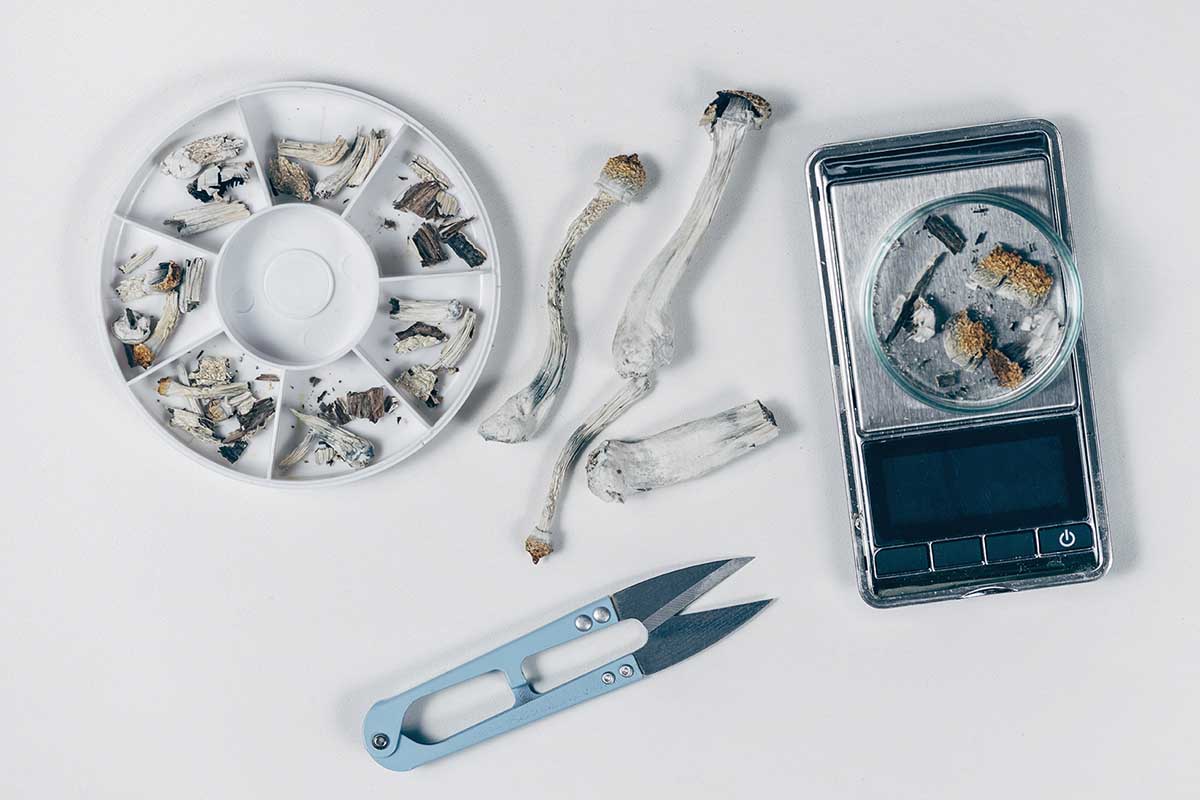
Overview of Microdosing and Its Potential Benefits
Microdosing refers to the practice of taking sub-perceptual doses of a psychedelic substance, such as psilocybin mushrooms. The goal is to experience the potential benefits associated with these substances while minimizing the hallucinogenic effects that are typically associated with higher doses.
One of the main benefits reported by microdosers is an improvement in mood. Many individuals claim that microdosing helps them feel happier, more optimistic, and better able to cope with stress. This could be due to the impact of psychedelics on serotonin receptors in the brain, which are involved in regulating mood.
In addition to mood enhancement, microdosing has also been linked to improved focus and energy levels. Some users report feeling more alert, productive, and motivated after a microdose. This could be particularly beneficial for individuals who struggle with attention-related issues or those who need a boost in their cognitive performance.
Enhanced creativity and problem-solving abilities are another potential benefit of microdosing. Many artists, writers, and musicians have claimed that microdosing helps them tap into their creative flow and think outside the box. While scientific research on this topic is limited, anecdotal evidence suggests that microdosing may indeed enhance divergent thinking and open up new avenues for innovation.
Moreover, microdosing offers an alternative approach to traditional medication for certain conditions. For example, some individuals with treatment-resistant depression have turned to microdosing as a way to manage their symptoms when other treatments have failed. Although more rigorous scientific studies are needed to fully understand its efficacy, early anecdotal reports suggest that it may hold promise as a complementary therapy option.
While there is still much we don’t know about the effects of microdosing due to limited research on this subject matter, systematic reviews and analyses have started shedding light on its potential benefits. These reviews compile existing studies and provide a comprehensive analysis of the available evidence. Although more research is needed, early findings suggest that microdosing may have a positive impact on mood, cognition, and creativity.
Health Benefits Reported by Adults Who Microdose Psychedelics
Reduced Symptoms of Anxiety and Depression
One of the most commonly reported benefits of microdosing psychedelics, such as psilocybin mushrooms, is a reduction in symptoms of anxiety and depression. Many adults who have experimented with microdosing psilocybin, have shared their experiences of feeling a significant decrease in their levels of anxiety and depression. These psychedelic substances seem to have a profound impact on the brain, allowing individuals to gain a new perspective on their emotions and thought patterns.
Participant reports suggest that microdosing can help individuals break free from negative thought loops and rumination, leading to an overall improvement in mood. By taking small doses of psychedelics, individuals may experience a shift in their perception, enabling them to see their problems from different angles. This newfound perspective often brings about feelings of relief, calmness, and mental clarity.
Increased Feelings of Happiness and Overall Well-being
Another reported effect of microdosing psychedelics is an increase in feelings of happiness and overall well-being. Individuals who engage in microdosing often describe experiencing enhanced moods and an improved sense of contentment with life. This could be attributed to the way these substances interact with serotonin receptors in the brain, which play a crucial role in regulating mood.
By modulating serotonin levels through microdosing, individuals may experience a boost in positive emotions and an elevated sense of happiness. It’s important to note that these effects are subjective and can vary from person to person. However, many anecdotal reports highlight the potential for microdosing to enhance overall well-being.
Improved Sleep Quality
Microdosing has also been associated with improved sleep quality among those who practice it regularly. Many participants report experiencing deeper sleep cycles and fewer disturbances throughout the night after incorporating microdoses into their routine. This could be beneficial for individuals struggling with insomnia or other sleep-related issues.
The exact mechanism behind this improvement in sleep quality is not yet fully understood. However, it is believed that microdosing may help regulate the brain’s sleep-wake cycle and promote relaxation, leading to more restful nights. Adequate sleep is essential for overall health and well-being, so the potential benefits of microdosing on sleep should not be overlooked.
Reduced Stress Levels
Stress reduction is another commonly reported benefit of microdosing psychedelics. Many individuals find that regular microdosing helps them manage stress more effectively and maintain a sense of calmness in their daily lives. This could be attributed to the impact of psychedelics on serotonin receptors, which are involved in regulating stress responses.
By modulating serotonin levels, microdosing may help individuals cope with stressful situations more easily and prevent excessive anxiety or overwhelm. It is important to note that while microdosing may provide temporary relief from stress, it should not be seen as a substitute for addressing underlying sources of stress or seeking professional help when needed.
Enhanced Self-awareness and Mindfulness
Microdosing has been associated with enhanced self-awareness and mindfulness among those who practice it regularly. By altering perception and thought patterns, microdoses of psychedelic substances can provide individuals with a heightened sense of self-reflection and introspection. This increased awareness allows individuals to gain insights into their behaviors, thoughts, and emotions.
Through this process of self-discovery facilitated by microdosing, individuals can develop a deeper understanding of themselves and their motivations. They may become more attuned to their own needs, values, and desires. This enhanced self-awareness can lead to personal growth and a greater ability to make conscious choices aligned with one’s authentic self.

Exploring the Positive Effects of Microdosing on Mental Health
Alleviating Symptoms of Treatment-Resistant Depression
One of the most promising areas of psychedelic research is the potential benefits of microdosing for individuals with treatment-resistant depression. Traditional treatments, such as antidepressant medications and therapy, may not always provide relief for everyone. However, preliminary studies have shown that microdosing could be a game-changer.
Microdosing involves taking small amounts of psychedelics like LSD or psilocybin mushrooms in sub-perceptual doses. These minuscule doses are believed to activate certain receptors in the brain responsible for mood regulation and emotional well-being. By doing so, microdosing may help alleviate symptoms of depression that are resistant to other forms of treatment.
Researchers have found that microdosers report improvements in their overall mental health and a reduction in depressive symptoms. Many individuals describe feeling more optimistic, motivated, and emotionally stable after incorporating microdosing into their routine. While further research is still needed to fully understand the mechanisms behind these effects, early findings suggest that microdosing holds immense promise as a potential treatment option for those struggling with treatment-resistant depression.
Reducing Anxiety-Related Disorders like Social Anxiety Disorder (SAD)
Anxiety-related disorders can significantly impact an individual’s quality of life and daily functioning. One particular disorder that has shown promise in responding positively to microdosing is social anxiety disorder (SAD). Sufferers often experience intense fear or discomfort when faced with social situations.
Microdosing may offer salutary effects by reducing anxiety levels and improving social interactions for individuals with SAD. Some users have reported feeling more at ease during social gatherings or public speaking engagements after integrating microdoses into their routine.
While it’s important to note that scientific evidence is still limited due to ongoing research, anecdotal reports from microdosers suggest a decrease in self-consciousness and a greater ability to engage in social activities without overwhelming anxiety. These findings highlight the potential for microdosing to provide relief for those struggling with SAD, offering hope for a brighter and more socially fulfilling future.
Decreasing Obsessive-Compulsive Behaviors
Obsessive-compulsive disorder (OCD) is characterized by intrusive thoughts and repetitive behaviors that can significantly disrupt daily life. While traditional treatments like therapy and medication are commonly used, some individuals have turned to microdosing as an alternative approach.
Microdosing may help individuals with OCD by reducing the intensity and frequency of obsessive thoughts and compulsive behaviors. Although research in this area is still in its early stages, anecdotal evidence suggests that microdosing could be a valuable tool in managing OCD symptoms.
Users have reported feeling less overwhelmed by their obsessions, experiencing fewer intrusive thoughts, and finding it easier to resist engaging in compulsive rituals. These preliminary findings indicate that microdosing holds promise as a potential adjunct therapy for individuals seeking relief from the burdensome effects of OCD.
Potential Benefits for Post-Traumatic Stress Disorder (PTSD)
Post-traumatic stress disorder (PTSD) can have debilitating effects on an individual’s mood and mental health, making it challenging to lead a normal life. However, emerging research has begun exploring the potential benefits of microdosing for individuals suffering from PTSD.
Early studies suggest that microdosers may experience decreased symptoms associated with PTSD, such as flashbacks, nightmares, and hypervigilance. While further investigation is needed to fully understand how microdosing impacts PTSD symptoms, these initial findings offer hope for alternative treatment options beyond traditional therapies.
By potentially modulating neural pathways involved in fear responses and memory consolidation, microdosing could provide relief from the distressing symptoms associated with PTSD. While caution should always be exercised when considering any form of treatment, these preliminary results open up new avenues for exploration within the realm of mental health research.
Managing Addiction and Reducing Cravings
Addiction is a complex condition, and one of the major mental health concerns of the western world, that can have severe physical and mental health consequences. Traditional addiction treatments often focus on abstinence or harm reduction strategies. However, microdosing may offer an additional approach to managing addiction by reducing cravings and promoting overall well-being.
How Microdosing Can Improve Cognitive Function and Creativity
Improved Focus, Concentration, and Mental Clarity
Microdosers have consistently reported experiencing enhanced focus, concentration, and mental clarity as a result of their microdosing regimen. By consuming small doses of substances such as psychedelics or nootropics, individuals have found that they are better able to direct their attention towards tasks at hand. This increased ability to concentrate can be particularly beneficial in today’s fast-paced world where distractions abound.
With improved focus comes the ability to delve deeper into cognitive tasks. Microdosers often find themselves fully immersed in their work or studies, leading to heightened productivity and efficiency. The enhanced concentration experienced through microdosing allows individuals to stay on track for longer periods without succumbing to mental fatigue or becoming easily distracted.
Enhanced Problem-Solving Abilities
One intriguing benefit reported by some microdosers is an improvement in problem-solving abilities. It seems that microdosing may unlock creative approaches to finding solutions by altering thought patterns and expanding cognitive flexibility. As a result, individuals who engage in microdosing may discover new perspectives and alternative ways of tackling challenges.
The creative processes involved in problem-solving can be greatly enhanced through microdosing. By facilitating “out-of-the-box” thinking, these small doses of substances can help break free from conventional thought patterns and explore novel ideas. This newfound creativity can lead to innovative solutions that were previously unexplored or unimaginable.
Boosting Creativity and Facilitating “Out-of-the-Box” Thinking
Microdosing has gained popularity among artists, musicians, writers, and other creative professionals due to its potential for enhancing creativity. By stimulating neural pathways associated with imagination and originality, microdosing may serve as a catalyst for inspiration during the creative process.
The alteration of brain chemistry brought about by microdosing encourages unconventional thinking patterns. Ideas flow more freely as the mind becomes more receptive to unique concepts and connections. This heightened state of creativity can lead to breakthroughs in artistic expression, problem-solving, and innovation.
Improved Memory and Learning Capabilities
Another potential cognitive benefit of microdosing is improved memory and learning capabilities. Microdosers often report enhanced retention of information, making it easier to recall facts, figures, or details from memory. This can be particularly advantageous for students or individuals engaged in intellectually demanding professions.
Microdosing may also enhance the consolidation of newly acquired knowledge. By optimizing neuroplasticity—the brain’s ability to reorganize itself—microdosing allows for more efficient encoding of information into long-term memory. As a result, learning becomes faster and more effective, enabling individuals to acquire new skills or knowledge with greater ease.
Increased Neuroplasticity
The cognitive enhancements associated with microdosing are believed to be closely linked to increased neuroplasticity. Neuroplasticity refers to the brain’s ability to adapt and rewire itself in response to new experiences or stimuli. By promoting neuroplastic changes, microdosing may facilitate the development of new neural connections and pathways.
These newly formed connections enable enhanced communication between different regions of the brain, leading to improved cognitive function overall. The increased neuroplasticity experienced through microdosing may contribute not only to improved focus, problem-solving abilities, creativity but also other aspects such as emotional well-being and mental resilience.

Enhancing Emotional Well-being through Microdosing
Microdosing, the practice of consuming small amounts of substances such as lysergic acid diethylamide (LSD) or Hericium erinaceus (also known as Lion’s Mane), has gained attention for its potential benefits in enhancing emotional well-being. This section explores how microdosing can positively impact emotional stability, empathy, overall mood, and the processing of emotions and traumatic experiences.
Increased Emotional Stability and Resilience
One of the reported benefits of microdosing is an increase in emotional stability and resilience. Many individuals who engage in microdosing have noticed a significant improvement in their ability to handle challenging experiences without being overwhelmed by negative emotions. By taking small doses of substances like LSD or Lion’s Mane, individuals may find themselves better equipped to navigate stressful situations with greater composure.
Heightened Sense of Empathy and Compassion
Microdosers often report experiencing a heightened sense of empathy and compassion towards others. This enhanced ability to connect with and understand the emotions of those around them can lead to more meaningful social interactions. By fostering a deeper understanding of others’ perspectives, individuals may be able to cultivate stronger relationships and contribute positively to their communities.
Improved Overall Mood and Emotional Balance
Another benefit associated with microdosing is an improvement in overall mood and emotional balance. Regular microdosers often describe feeling more positive, content, and emotionally grounded throughout their day-to-day lives. This enhanced mood can contribute to increased productivity, motivation, and general well-being.
Effective Processing of Emotions and Traumatic Experiences
Microdosing shows promise in helping individuals process emotions and traumatic experiences more effectively. Some users have reported that microdoses assist them in gaining insights into unresolved emotional issues or traumatic events from their pasts. By facilitating a gentle exploration of these memories or feelings, microdosing may offer individuals an opportunity for healing and growth.
Potential in Reducing Symptoms of Mood Disorders
Research suggests that microdosing may have potential benefits for individuals with mood disorders such as bipolar disorder. While further studies are needed to establish its efficacy, anecdotal evidence indicates that microdosing might help manage symptoms associated with these conditions. Some users report experiencing a reduction in anxiety, depression, and mood swings after incorporating microdosing into their wellness routines.
Microdosing for Increased Productivity and Focus
Many microdosers report enhanced productivity levels while on sub-perceptual doses. The practice of microdosing involves taking very small amounts of psychotropic substances, such as cannabis or LSD, to achieve subtle effects without experiencing a full-blown trip. While the concept may seem unconventional, an increasing number of individuals are turning to microdosing as a means to improve their focus and productivity.
Improved focus, attention span, and task performance have been observed in some individuals who microdose. By taking small doses of these substances, users claim that they can concentrate better on their work or study materials. This heightened focus allows them to delve into tasks with greater clarity and efficiency. Imagine having the ability to maintain your attention on a single task for longer periods without getting easily distracted by external stimuli – it’s like putting blinders on your brain, enabling you to accomplish more in less time.
Microdosing may also increase motivation, drive, and goal-oriented behavior. Many users report feeling a boost in energy and enthusiasm after consuming sub-perceptual doses. It’s as if they’ve unlocked an inner wellspring of determination that propels them forward towards their objectives. With this newfound motivation, individuals find themselves more willing to tackle challenging projects head-on and push through obstacles that might have previously deterred them.
Furthermore, microdosing has the potential to improve time management skills and efficiency at work or study. People who struggle with poor focus often find it difficult to stay organized and manage their time effectively. However, when using microdoses of substances like cannabis or LSD, they experience improved energy levels along with enhanced concentration abilities. This combination allows them to prioritize tasks more effectively and make better use of their available time.
In addition to increased productivity and improved focus, microdosers often report reduced procrastination tendencies. Procrastination is a common challenge faced by many individuals. However, microdosing has been found to help individuals overcome this hurdle by reducing the tendency to put off important work. By enhancing motivation and focus, microdosing can inspire individuals to take action promptly and avoid unnecessary delays.
It is worth noting that microdosing should be approached with caution and responsibility. While some people may experience positive effects from microdoses, others may not find it beneficial or suitable for their needs. Accurate dose measurement is crucial to ensure a safe and controlled experience. It is always recommended to consult with a healthcare professional before considering any form of substance use.
The Potential Therapeutic Benefits of Microdosing for Various Conditions
Microdosing shows promise as a complementary therapy for chronic pain management
Finding effective treatments can be challenging. However, recent research has shown that microdosing may offer potential benefits as a complementary therapy. By taking small doses of certain substances, such as psychedelics or cannabis, individuals have reported experiencing relief from their chronic pain symptoms.
Preliminary studies have indicated that microdosing can help alleviate cluster headaches, a severe and debilitating condition characterized by excruciatingly painful headaches that occur in clusters over a period of time. These studies suggest that microdosing may provide beneficial effects for individuals suffering from this condition, potentially offering them respite from the intense pain they experience.
Furthermore, there is evidence to suggest that microdosing could also benefit individuals with fibromyalgia. Fibromyalgia is a disorder characterized by widespread musculoskeletal pain accompanied by fatigue, sleep disturbances, and cognitive issues. Some studies have found that microdosers report experiencing relief from the symptoms associated with fibromyalgia. While further research is needed to fully understand the therapeutic effects of microdosing on fibromyalgia, these initial findings are promising.
Microdosing could potentially aid in managing symptoms of ADHD/ADD
For individuals living with attention deficit hyperactivity disorder (ADHD) or attention deficit disorder (ADD), finding effective treatment options can greatly improve their quality of life. Traditional psychiatric prescription medications are commonly used to manage these conditions; however, some individuals may experience unwanted side effects or find these medications ineffective.
Microdosing presents an alternative potential intervention target for managing ADHD/ADD symptoms. While more research is needed to fully explore the efficacy and safety of microdosing for these conditions, anecdotal reports suggest that some individuals have experienced improvements in focus and attention when using small doses of certain substances.
Patients with terminal illnesses have reported improved quality of life through microdosing
When individuals are faced with a terminal illness, their quality of life becomes paramount. In such cases, microdosing has shown potential benefits in enhancing the well-being and overall experience for these patients. By providing relief from physical and mental illness and emotional symptoms associated with their condition, microdosing can offer comfort and improve their overall sense of well-being.
While it is important to note that microdosing should not be seen as a cure or replacement for traditional medical treatments, it can serve as a complementary approach to help alleviate symptom severity and enhance the overall treatment experience for individuals with terminal illnesses. The placebo effect can also play a role in the perceived benefits experienced by these patients, as the belief in the efficacy of the treatment itself can contribute to positive outcomes.
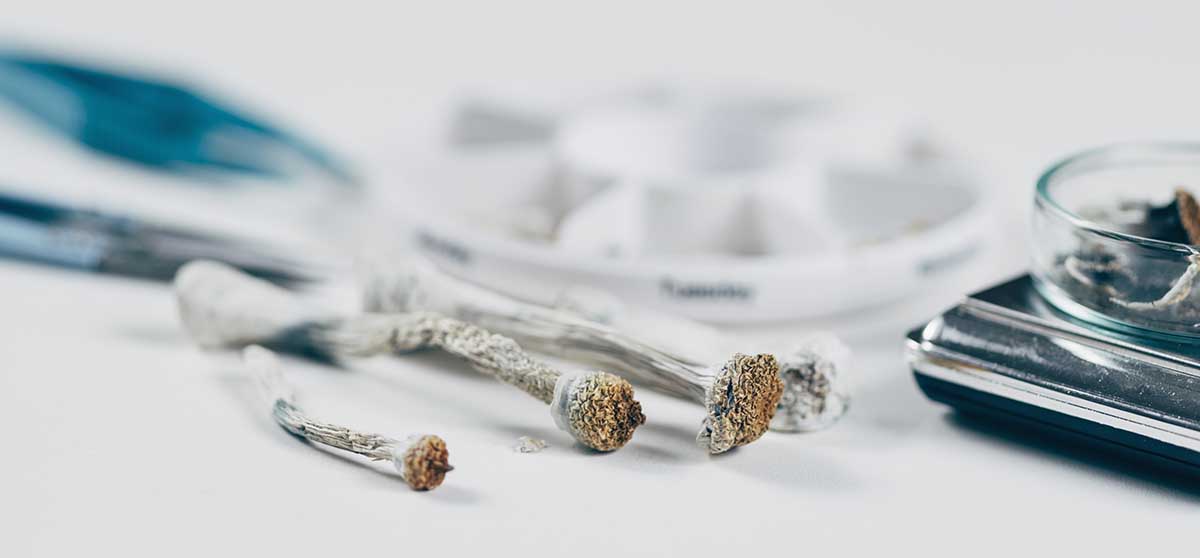
Mitigating Risks Associated with Microdosing: Safety Considerations
Proper Dosage Control is Crucial When Practicing Microdosing to Minimize Risks
One of the most important factors to consider is proper dosage control. Unlike full doses of psychedelics, which are typically taken for recreational or therapeutic purposes, microdosing involves taking sub-perceptual amounts of these substances. This means that the effects are subtle and often go unnoticed.
To ensure safety and minimize potential risks, it is essential to accurately measure and control the dosage. Using a precise scale or volumetric dosing method can help achieve this. It’s crucial not to underestimate or overestimate the amount consumed as even slight variations can lead to unexpected outcomes.
By maintaining proper dosage control, individuals can have more confidence in their microdosing experience and reduce the likelihood of experiencing adverse effects. However, it’s important to remember that everyone’s response may vary due to individual sensitivities.
Awareness of Individual Sensitivities is Important Due to Varying Reactions to Psychedelics
Informed consent plays a vital role when considering microdosing as a practice. While some people may find microdosing beneficial and experience minimal side effects, others may have different reactions due to their unique physiological makeup.
It’s essential for individuals interested in microdosing to be aware of their own sensitivities and potential risks associated with psychedelic substances. Factors such as body weight, metabolism, pre-existing medical conditions, and mental health history can all influence how an individual responds to microdoses.
Engaging in thorough research and self-reflection before embarking on a microdosing regimen is highly recommended. Understanding personal limitations and being prepared for any potential challenges can contribute significantly to a safer experience overall.
Educating Oneself About Potential Drug Interactions is Essential Before Starting Microdosing
Before diving into microdosing, it’s crucial to be well-informed about potential drug interactions. This is particularly important for individuals who are already taking medications or have underlying health conditions.
Certain substances, including prescription drugs and over-the-counter medications, may interact with psychedelics and lead to adverse effects. These interactions can range from mild discomfort to more severe complications.
To mitigate risks associated with drug interactions, it is advisable to consult with a healthcare professional or psychedelic therapist. They can provide valuable guidance based on an individual’s specific circumstances and help identify any potential contraindications.
Regular Breaks Between Microdosing Cycles Can Help Prevent Tolerance and Dependence
While microdosing can offer various benefits, it’s essential to exercise caution and avoid developing tolerance or dependence on the substances used. Taking regular breaks between microdosing cycles is one way to mitigate these risks.
Psychedelics have been shown to induce tolerance when used repeatedly over a short period. By incorporating breaks of several days or weeks between microdoses, individuals allow their bodies to reset and minimize the likelihood of building up a tolerance.
Moreover, taking breaks also helps prevent psychological dependence on the perceived benefits of microdosing substances. It allows individuals to assess their experiences objectively and maintain a healthy relationship with these substances.
Seeking Guidance from a Healthcare Professional or Psychedelic Therapist is Advisable
When considering microdosing as part of one’s wellness routine, seeking guidance from a healthcare professional or psychedelic therapist is highly advisable. These experts possess specialized knowledge that can help navigate the potential risks associated with microdosing.
Healthcare professionals can provide personalized advice based on an individual’s medical history and current health status. They can offer insights into possible contraindications, dosage recommendations, and appropriate monitoring during the process.
Psychedelic therapists bring additional expertise in working with altered states of consciousness and integrating transformative experiences into daily life. Their guidance can enhance safety and maximize the benefits of microdosing while minimizing potential risks.
Legal Status of Microdosing: Regulations and Implications
In the world of microdosing, the legal landscape can be a bit hazy. The legality of microdosing varies across countries and jurisdictions, with some places taking a more lenient approach while others maintain strict regulations. Let’s delve into the topic and explore the implications of the legal status of microdosing.
The Decriminalization and Legalization Movement
In recent years, there has been a growing movement advocating for the decriminalization or legalization of certain psychedelics for therapeutic purposes. Countries like Canada have taken significant steps in this direction by allowing access to substances such as psilocybin under specific circumstances.
The decriminalization movement aims to shift away from treating individuals who possess small amounts of illicit substances as criminals but rather focus on providing them with appropriate support and guidance. By reducing penalties associated with possession, these countries hope to address addiction issues more effectively while minimizing unnecessary incarceration.
The Illegality Quandary
It is important to note that despite these progressive changes, possession, sale, or use of psychedelics without proper authorization remains illegal in many places. This means that engaging in microdosing activities outside regulated channels could potentially lead to legal consequences.
The illegality surrounding microdosing not only poses risks related to fines or imprisonment but also carries social stigma. Due to its association with psychedelic drugs and substances that are often classified as illicit drugs, individuals who engage in microdosing may face judgment from society at large. It is crucial for anyone considering microdosing to weigh these potential consequences against their desire for personal exploration and growth.
Staying Informed about Laws
To navigate the legal implications surrounding microdosing effectively, it is essential to stay informed about specific laws within one’s location. Laws regarding psychedelics can vary significantly even within a single country, so it is important to research local legislation thoroughly.
For instance, in Canada, while certain substances like psilocybin have been decriminalized for therapeutic purposes, they are still classified as Schedule III drugs under the Controlled Drugs and Substances Act. This means that unauthorized possession or distribution of these substances can still result in legal consequences.
On an international level, the United Nations classifies psychedelics under different categories based on their potential for abuse and medical value. These category references codes help shape the legal frameworks adopted by individual countries.
Future Directions in Microdosing Research: Expanding Knowledge and Applications
The field of microdosing research is rapidly evolving, with ongoing studies aimed at uncovering the potential benefits and risks associated with this practice. As researchers delve deeper into the subject, they are exploring various avenues to expand our understanding of microdosing and its applications in modern clinical research.
Exploring Long-Term Effects on Mental Health and Well-being
One crucial aspect that researchers are keen on investigating in future psychedelic research is the long-term impact of microdosing on participants reported mental health and well-being. While prior research has provided insights into short-term effects, such as enhanced mood and creativity, there is still much to learn about the prolonged consequences. Future studies may aim to track individuals who have engaged in microdosing over extended periods to evaluate any potential changes in their psychological state.
Understanding how microdosing affects mental health can have significant implications for therapeutic applications. For instance, if it is found that microdosing can alleviate symptoms of certain mental health conditions or enhance overall well-being, it could open up new possibilities for treatment approaches. By examining outcomes through rigorous scientific methods and randomized controlled trials, researchers hope to shed light on whether microdosing holds promise as a long-term intervention.
Unraveling Mechanisms of Action in the Brain
Another exciting area of future research lies in unraveling the mechanisms by which microdosing exerts its effects on the brain. Although anecdotal reports suggest benefits such as increased focus and divergent thinking, it remains unclear how these changes occur at a neural level. Researchers are actively using advanced imaging techniques to investigate brain activity during microdosing sessions.
By analyzing data obtained from neuroimaging studies, scientists aim to identify specific regions or networks within the brain that are influenced by microdoses. This knowledge could help develop a more comprehensive understanding of how these substances interact with neural pathways and potentially uncover new therapeutic targets. It may provide insights into why microdosing affects individuals differently, paving the way for personalized dosing protocols in the future.
Optimizing Dosing Protocols for Different Conditions and Individuals
As microdosing gains traction as a potential therapeutic tool, future studies may focus on optimizing dosing protocols. Currently, there is no standardized approach to microdosing, with individuals experimenting with different substances and doses based on anecdotal evidence. However, rigorous scientific research can help establish evidence-based guidelines that consider various factors potentially distinct microdosing outcomes such as the specific condition being targeted or an individual’s unique characteristics.
Optimizing dosing protocols involves determining the ideal dosage range, frequency of administration, and duration of microdosing cycles. By conducting systematic studies with larger sample sizes, researchers can gather more robust data to inform these recommendations. This approach would enhance safety and efficacy while minimizing potential risks associated with microdosing.
Expanding Therapeutic Applications Beyond Current Understanding
The scientific research of microdosing’s therapeutic potential extends beyond psychological clinical science and its current applications. While much of the existing research has focused on mental health conditions like depression and anxiety, future studies could explore its efficacy in treating other disorders or enhancing cognitive function in healthy individuals.
To expand our understanding of microdosing’s therapeutic applications, researchers will need to investigate a broader range of conditions. This could involve studying its effects on neurodegenerative diseases like Alzheimer’s or exploring its impact on cognitive processes such as memory consolidation or problem-solving abilities. The findings from these studies could have far-reaching implications for medical treatments and cognitive enhancement strategies.
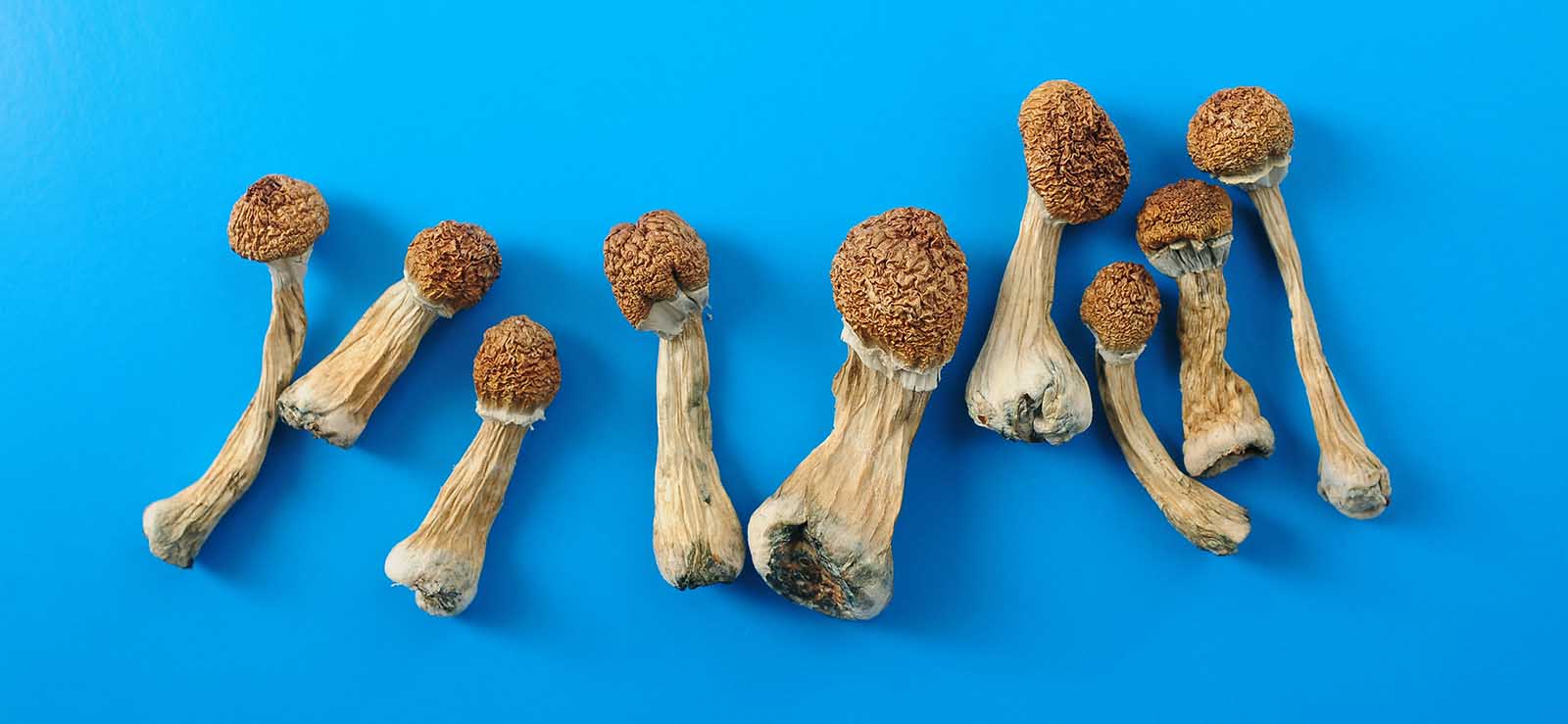
Conclusion – The Promising Potential of Microdosing for Personal Growth and Well-being
Microdosing, the practice of taking small amounts of psychedelic substances, has gained significant attention in recent years due to its potential benefits for personal growth and well-being. This innovative approach to self-improvement has shown promising results in various areas of life. Let’s explore some key findings on the positive effects of psychedelic microdosing.
Health Benefits Reported by Adults Who Microdose Psychedelics
Many adults who engage in microdosing have reported experiencing several mental health benefits themselves. These include reduced symptoms of anxiety and depression, improved mood regulation, and increased overall well-being. By incorporating microdosing into their routines, individuals have found relief from mental health challenges that may otherwise hinder their daily lives.
Exploring the Positive Effects of Microdosing on Mental Health
Microdosing has also shown potential in enhancing mental health. Research suggests that it can increase mindfulness, promote emotional resilience, and provide a sense of clarity and purpose. These effects contribute to better stress management and an improved ability to cope with challenging situations.
How Microdosing Can Improve Cognitive Function and Creativity
One exciting aspect of experimental microdosing research is its impact on cognitive function and creativity. Users have reported enhanced problem-solving abilities, improved focus, and increased productivity. Microdosing has been linked to heightened creativity and a greater capacity for thinking outside the box.
Enhancing Emotional Well-being through Microdosing
Emotional well-being is another area where microdosing shows promise. Individuals who engage in microdosing often report feeling more connected to their emotions, experiencing greater empathy towards others, and having an increased sense of gratitude. These emotional enhancements contribute to overall happiness and satisfaction with life.
Microdosing for Increased Productivity and Focus
For those seeking a boost in productivity and focus, microdosing can be a valuable tool. Many users have reported improved concentration, heightened motivation, and increased energy levels. By incorporating microdosing into their routines, individuals can potentially optimize their performance in various areas of life.
The Potential Therapeutic Benefits of Microdosing for Various Conditions
Microdosing holds potential therapeutic benefits for a range of conditions. Research suggests that it may be effective in alleviating symptoms associated with post-traumatic stress disorder (PTSD), addiction, and cluster headaches. However, further research is needed to fully understand the extent of its therapeutic applications.
Mitigating Risks Associated with Microdosing: Safety Considerations
While microdosing has shown promise, it is essential to consider safety precautions. Users should always ensure they are obtaining substances from reliable sources and adhere to recommended dosage guidelines. It is crucial to be aware of potential interactions with other medications or underlying health conditions.
Legal Status of Microdosing: Regulations and Implications
The legal status of microdosing varies across different jurisdictions. It is important to stay informed about local regulations regarding psychedelic substances before considering microdosing as a personal growth tool. Understanding the legal implications ensures compliance with the law and avoids any unnecessary risks.
Future Directions in Microdosing Research: Expanding Knowledge and Applications
As interest in microdosing continues to grow, so does the need for further research. Exploring its mechanisms of action, long-term effects, and potential applications will contribute to expanding our understanding of this practice. Continued scientific investigation and clinical trials will provide valuable insights into optimizing microdosing protocols for maximum benefit.
In conclusion, microdosing shows promising potential for personal growth and well-being by offering numerous benefits such as improved mental health, cognitive function, emotional well-being, productivity, and focus. While considering safety precautions and legal implications is crucial when engaging in microdosing practices, ongoing research will help expand our knowledge and determine its full range of applications. Embracing this innovative approach may offer individuals an opportunity to enhance their lives and unlock their true potential.
FAQs
Q: Is microdosing legal?
Microdosing’s legal status varies across different jurisdictions. It is important to research and understand the local regulations regarding psychedelic substances before considering microdosing as a personal growth tool.
Q: Can microdosing help with anxiety and depression?
Many adults who engage in microdosing have reported reduced symptoms of anxiety and depression. However, it is crucial to consult with a healthcare professional for personalized advice on mental health conditions.
Q: Are there any risks associated with microdosing?
While microdosing has shown promise, it is essential to consider safety precautions. Users should ensure they obtain substances from reliable sources, adhere to recommended dosage guidelines, and be aware of potential interactions with other medications or underlying health conditions.
Q: Can microdosing improve creativity?
Microdosing has been linked to heightened creativity and a greater capacity for thinking outside the box. Many users have reported enhanced problem-solving abilities, improved focus, and increased productivity.
Q: How can I incorporate microdosing into my routine?
Incorporating microdosing into your routine requires careful consideration. It is advisable to seek guidance from experts or professionals knowledgeable about psychedelic substances to develop a safe and effective protocol tailored to your needs.
Q: Does microdosing have long-term effects?
The long-term effects of microdosing are still being studied. Ongoing research aims to determine the extent of its benefits, potential risks, and optimal protocols for sustained use.
Curious About Opportunities in the New Psilocybin Market?
PsyCann's expert team of psilocybin business consultants are here to answer any questions you may have.
More To Explore








